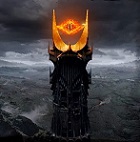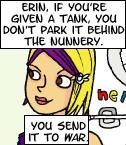delatbabel
Posts: 1252
Joined: 7/30/2006
From: Sydney, Australia
Status: offline

|
quote:
ORIGINAL: Flaviusx
Ketza, no running is necessary if SW Front starts off against an unreinforced AGS. Lock that in, and you can start doing things with the VPs to prevent runaways.
As things presently stand the entire opening turn is ridiculous and leads to grossly ahistorical play in every PBEM game. It just keeps getting worse and worse as folks optimize the opening and the inevitable response to that is for Soviets to run more and more.
1941 is flat out broken for PBEM. Has been for a very long time. No game ever develops historically thanks to this preposterous dynamic driven by the first turn; everything just snowballs from there. None of this is believable to me, not the running, nor the opening. But there it is. The whole thing needs to be redesigned from the ground up.
I agree with what you're saying, including "1941 is flat out broken for PBEM" and "grossly ahistorical play", however in terms of exactly what needs fixing I think I'm a bit left field.
If you compare what really happened in the summer of 1941 vs what actually happens in 1941 in most PBEM games, then you'll find that the real Soviet losses in 1941 were actually much higher than those suffered by most players. In turn, the actual Soviet replacements and reinforcements were actually much higher than the game provides. I don't believe that the VP system needs fixing to solve this, but it is a fundamental change that needs making. Hear my argument for a moment if you will:
* Historically, the Soviets didn't run as much as most Sir Robinovsky (myself included) players do. If they did they would have had much lower losses in 1941 than they really did, probably in line with what most players achieve in the game.
* If the game produces a historical level of reinforcements in 1941 *and* most Soviet players run, then the game will be a runaway (excuse the pun) victory for the Soviets in 1943 or at the earliest 1944. Facing a 12+ million man army isn't going to be fun for the Germans.
* If the game enforces "stand and hold" orders on the Soviets and doesn't increase the level of reinforcements to the historical levels then the game will be a runaway victory for the Germans by end of 1942. Trying to mount a winter offensive with a 3.5 million man army isn't going to work, and trying to hold the Germans at bay in 1942 with a 4.5 million man army isn't going to be any fun either.
* In reality, the level of Soviet reinforcements provided to the front line by RVGK was a certain amount of "panic buying" on the part of the Soviets in 1941. This was because they lost unprecedented amounts of men and material on the front line in early summer, far higher than had been envisaged by Stavka or even by OKW. So they dug deep into the Soviet manpower pool and produced, at an enormous cost to the Soviet peacetime economy, a huge number of replacements.
* I put forwards the view that if the Soviet front line units had retreated in good order and not lost vast numbers of men, then RVGK would not have had to dig so deep into Soviet manpower as they did, and in order to retain some semblance of balance in the economy would not have done so. No nation would risk doing so if it didn't have to -- Germany didn't until towards the end when they had to, Britain didn't, Australia didn't, and neither (really) did the USA or Japan.
So, in theory, either tactic should work. The Russians should be able to run, maintain their original troops but at the cost of receiving lower replacements into the manpower pools, or stand and fight, losing their up-front army but then expect a much larger troop commitment from RVGK at the cost of the economy.
The problem with building that into the game system is that the game system at the moment is hard coded to produce the reverse -- if you stay and defend your front line manpower centres (assuming you're successful, perhaps against a weak German opponent) then you will produce vast numbers of reinforcements and quickly overwhelm the German army. Conversely, if your army is demolished and your manpower centres get hosed then you won't be able to produce the replacements to get back into the war.
In reality the USSR had vast numbers of manpower reserves, not just numbers living in cities such as Kiev, but the agricultural population (of what was still essentially an agrarian peasant economy) and the huge population of districts such as the Caucasus region which could have been called on even if Kiev and Moscow both fell, but would they have done so if they didn't have to?
Now I'm not an economist nor a professional war strategist (and certainly not a communist economist, there wouldn't be much in the way of paying jobs for that these days) so I haven't looked at the numbers in detail, but surely within the game system there is room for some balance either way.
_____________________________
--
Del
|
 Printable Version
Printable Version























 New Messages
New Messages No New Messages
No New Messages Hot Topic w/ New Messages
Hot Topic w/ New Messages Hot Topic w/o New Messages
Hot Topic w/o New Messages Locked w/ New Messages
Locked w/ New Messages Locked w/o New Messages
Locked w/o New Messages Post New Thread
Post New Thread